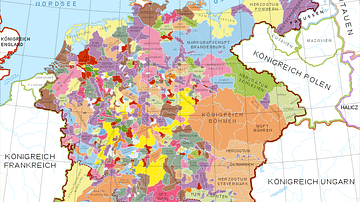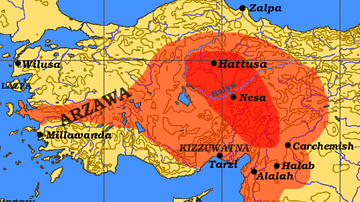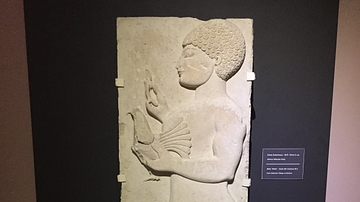Illustration
A map illustrating the rise and expansion (c. 1750 - 1200 BCE) of the Hittites, ancient Anatolian people who spoke an Indo-European language. At its height around the mid-14th century BCE, the Hittite empire ruled most of Asia Minor from the northern Levant to Upper Mesopotamia. After c. 1180 BCE, during the Bronze Age Collapse, with increased pressure from the Kaska tribes and the arrival of the Sea Peoples, the empire came to a sudden violent end. It splintered into independent “Neo-Hittite” city-states, some of which survived well into the 8th century BCE.
About the Author
Cite This Work
APA Style
Netchev, S. (2022, July 06). The Hittite Empire, 13th century BCE. World History Encyclopedia. Retrieved from https://www.worldhistory.org/image/16114/the-hittite-empire-13th-century-bce/
Chicago Style
Netchev, Simeon. "The Hittite Empire, 13th century BCE." World History Encyclopedia. Last modified July 06, 2022. https://www.worldhistory.org/image/16114/the-hittite-empire-13th-century-bce/.
MLA Style
Netchev, Simeon. "The Hittite Empire, 13th century BCE." World History Encyclopedia. World History Encyclopedia, 06 Jul 2022. Web. 14 Apr 2025.








